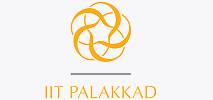Course Title and Code
Measurements and Instrumentation (EE3030A)
Target Programme
UG
Target Discipline
EE
Course Credit
3-0-2-4 (Lecture-Tutorial-Practical-Total Credits)
Course Category
Core
Prerequisite
Electrical and Magnetic Circuits
Course Content
| S. No. | Topic | Lecture Hours |
|---|---|---|
| 1 | Measurement Introduction; Measurement Terminology: Accuracy, Precision, bias, resolution, reliability, repeatability | 3 |
| 2 | Errors in measurement: error in reading, full-scale error, systematic error, random error and propagation of errors | 8 |
| 3 | Analog Instrumentation; Calibration and Bridges, Signal Conditioning Circuits; Voltage and Phase measurement: phase-sensitive detector; Dynamic Characteristics of Sensors/Instruments | 12 |
| 4 | Instrumentation Circuits; Probe compensation: Linearization circuits; Instrumentation amplifier | 4 |
| 5 | Digital Instrumentation: Digital Multimeter, Analog-to-Digital Converters, Digital-to-Analog Converters, Data Acquisition systems; Digital Storage Oscilloscope | 6 |
| 6 | Transducers - definition and classification; Basic principles and working of Strain Gauge, LVDT, Temperature Transducers, accelerometer, Instrument Transformers; Basics of resistive, capacitive, inductive transducers; photodiode, piezoelectric effect | 9 |
| 7 | Laboratory experiments on: Microcontroller-based instrumentation, Measurement of offset voltage, bias current and DC gain of operational amplifiers, Developing instrumentation for simple transducers such as strain gauges and linear variable displacement transducer, Temperature measurement using RTD and linearization of output for a quarter bridge sensor, Building virtual instruments, Analog-to-Digital (ADC) and Digital-to-Analog (DAC) converters, Design of direct digital conversion circuitries | 7 (3-hour each) |
Total 42 lecture hours and 7 experimental sessions
Learning Objectives
This course aims at providing an introduction to the area of electronic measurements and instrumentation.
Learning Outcomes
- Compare different types of instruments and its operating principles.
- Understand the techniques of making measurements using various electronic sensors.
- Design simple signal conditioning circuits to process the outputs from various kinds of sensors.
Text/Reference Books
- A Course In Electrical And Electronic Measurements and Instrumentation - A K Sawhney (ISBN: 9788177001006)
- K. Neubert, ‘Instrument Transducers - An introduction to their performance and design’ Oxford University Press, Oxford, Second edition-2003 (ISBN: 9780195629972)
- E. O. Doeblin ‘Measurement Systems – Application and Design’ McGraw –Hill Publications, Fifth Edition, 2004 (ISBN: 9780070699687)
